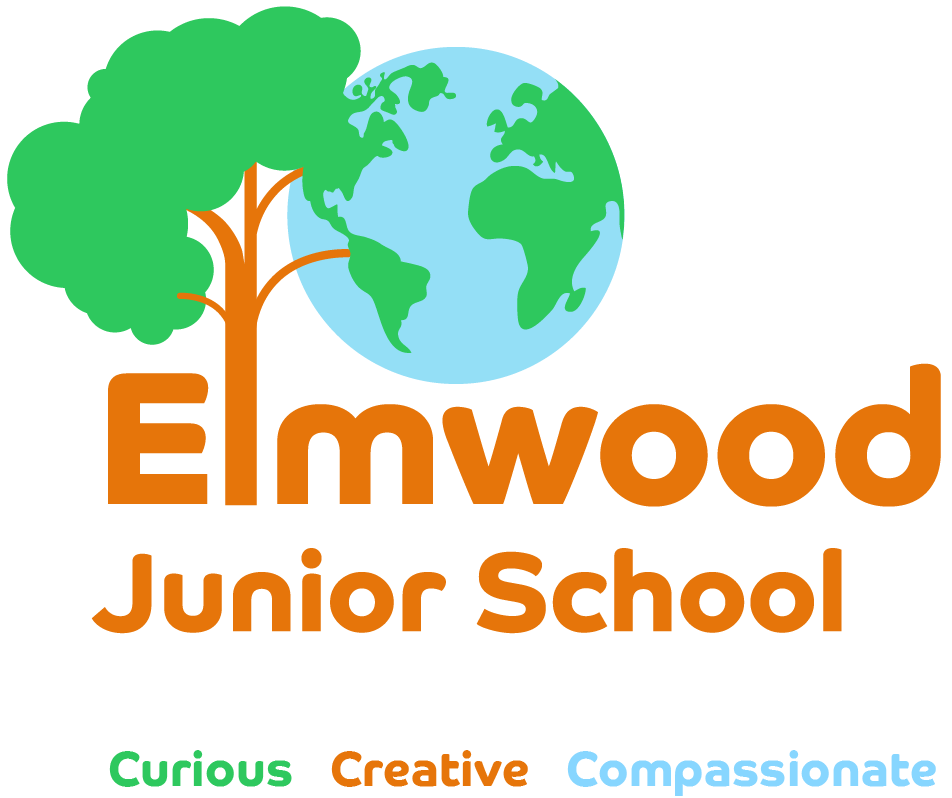Intent
Reading is a vital skill and this should be reflected in the time spent at school on reading activities. The school aims to:
- Foster a life-long love of reading, encouraging the children to be reflective readers by listening to and interacting with a variety of texts
- Develop fluent, confident and independent readers through a structured focus on word, sentence and text level knowledge
- Develop and extend the children’s vocabulary
- Ensure children can read aloud with clarity
- Provide plenty of opportunities to read for pleasure and help children to recognise its value
- Ensure reading is a transferrable skill and that children are reading across the wider curriculum
- Develop a consistent approach to reading teaching in order to close any gaps and to target the highest number of children attaining the expected standard and higher.
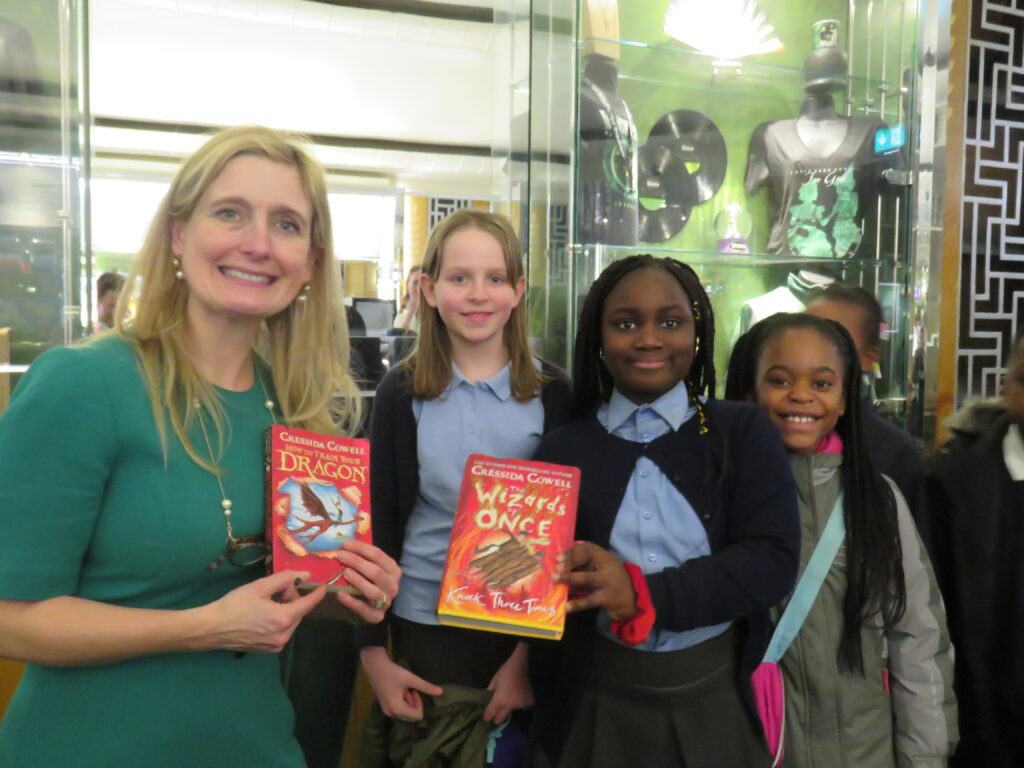
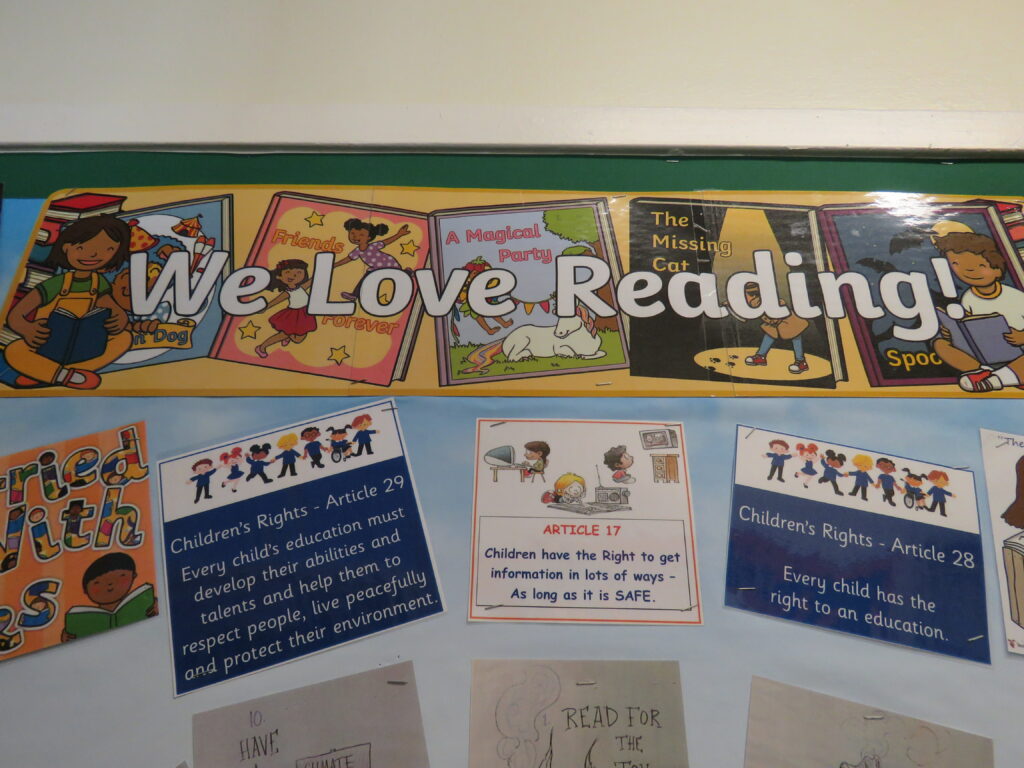
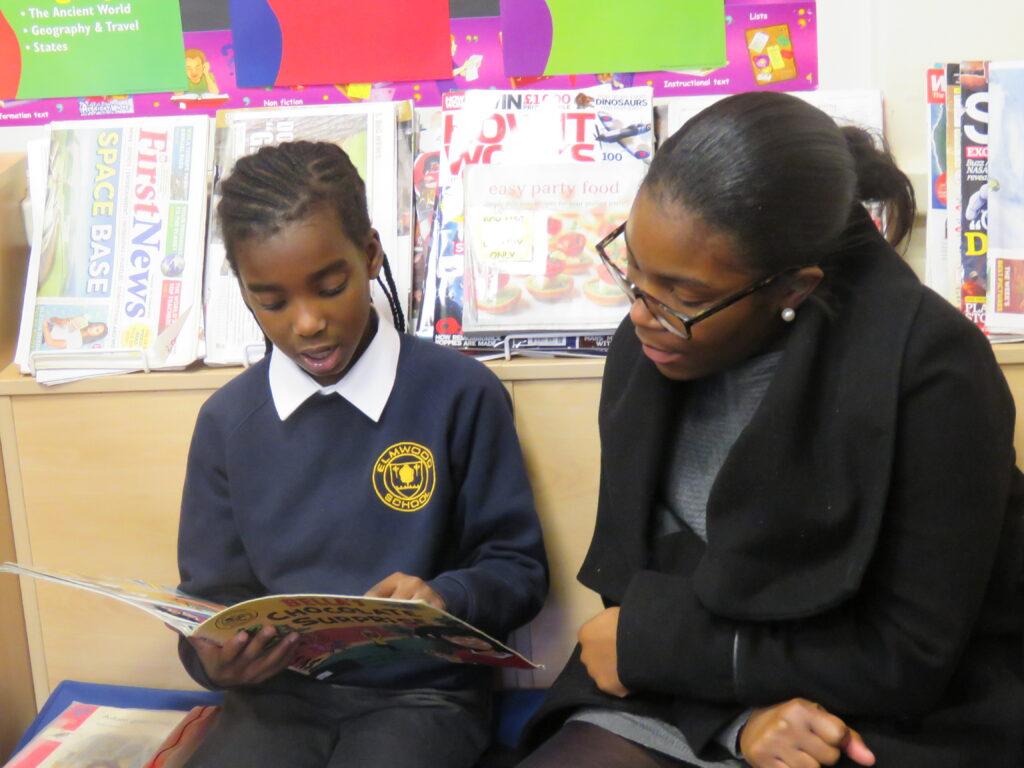
Implementation
Reading skills are developed by:
Reading for pleasure
- Allowing opportunities to talk about books through ‘book talk’ and post-it note recommendations, creating book reviews and teacher’s ‘golden tickets’
- The use of high-quality books is at the heart of our school’s successful approach to engage and support children to become motivated and independent readers
- Essential story time at the end of each day where teachers read to build on many foundational skills, introduce vocabulary and provide a model of fluent and expressive reading
- Children having allocated time to read books of their choosing or explore books that teachers (or children through book recommendations) have selected for them
Reading for meaning
- Whole class reading sessions focus on our school ‘Reading Roles’ to develop competent readers who can discuss and record their level of understanding of texts read
- Vocabulary is explored and developed, with teachers providing opportunities to explore definitions of new words and make links between these and known words.
- Teachers provide opportunities to read in different subject areas, especially English lessons which are book-based and at the heart of our themed, creative curriculum.
Reading for practice
- Assessment ensures that children who find reading challenging are supported through intervention/ prioritised daily reading and more able readers are challenged through personalised targets during 1:1 reading
- Adults/carers actively support our reading journey by reading with their children and recording observations in their home-school diaries
- Children read during daily whole class reading sessions and opportunities are made to read in other subjects
- Teachers use free reading time to listen to readers 1:1, with a particular focus on the lowest 20% who read at least once more a week with teachers/LSAs
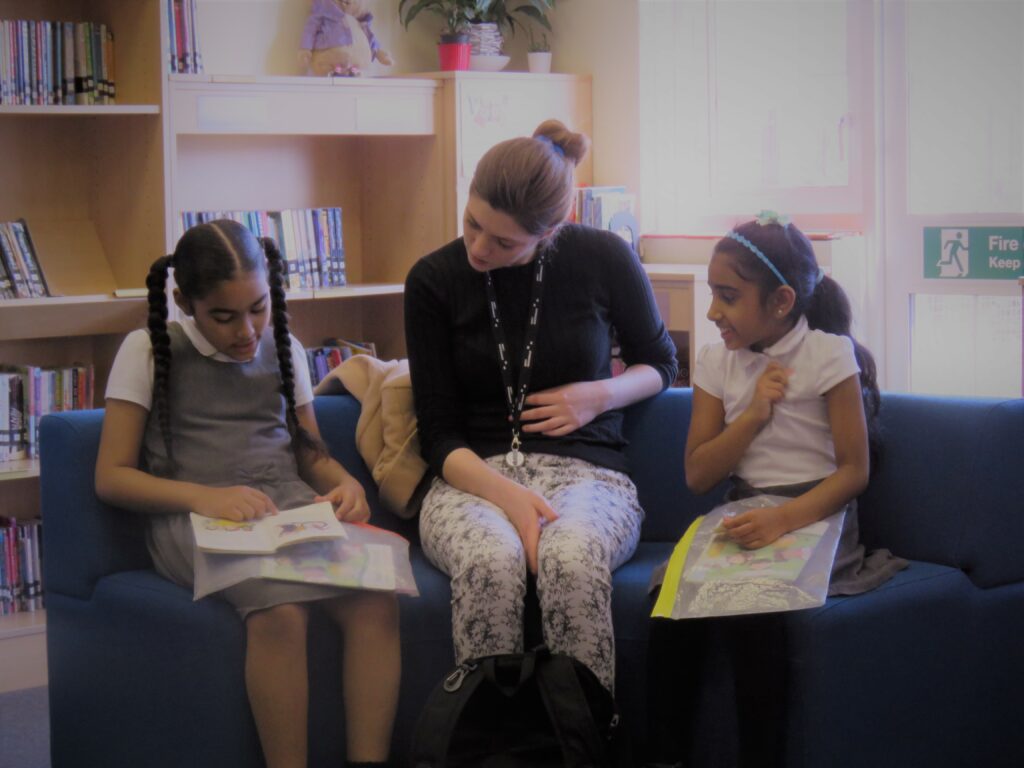
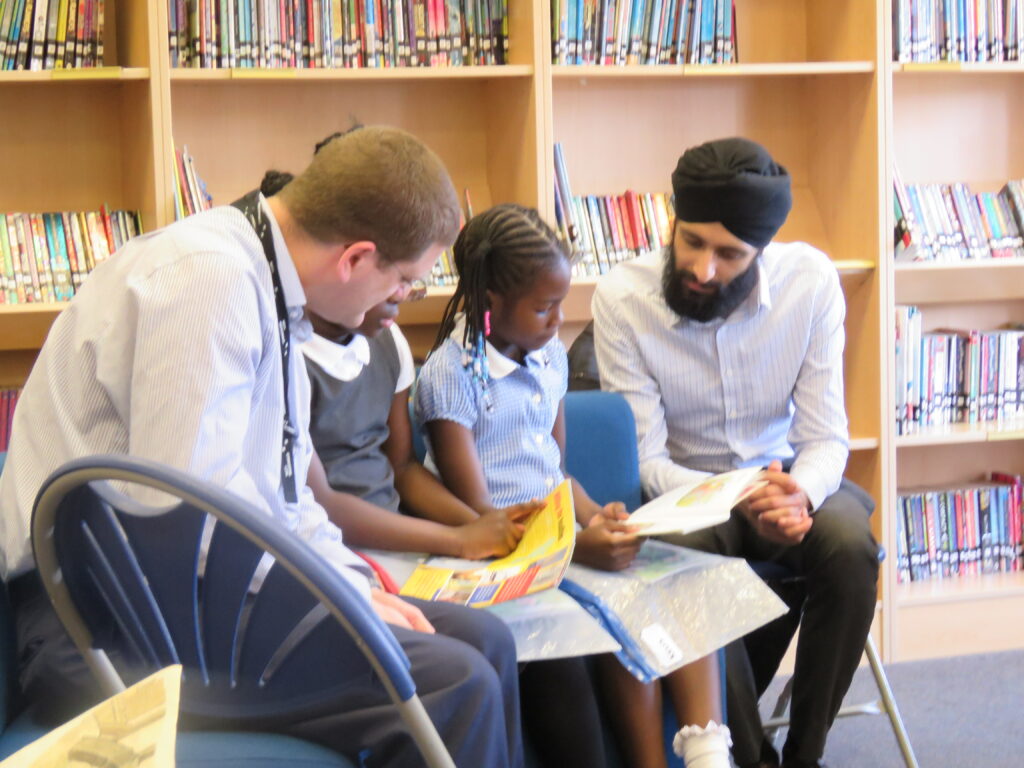
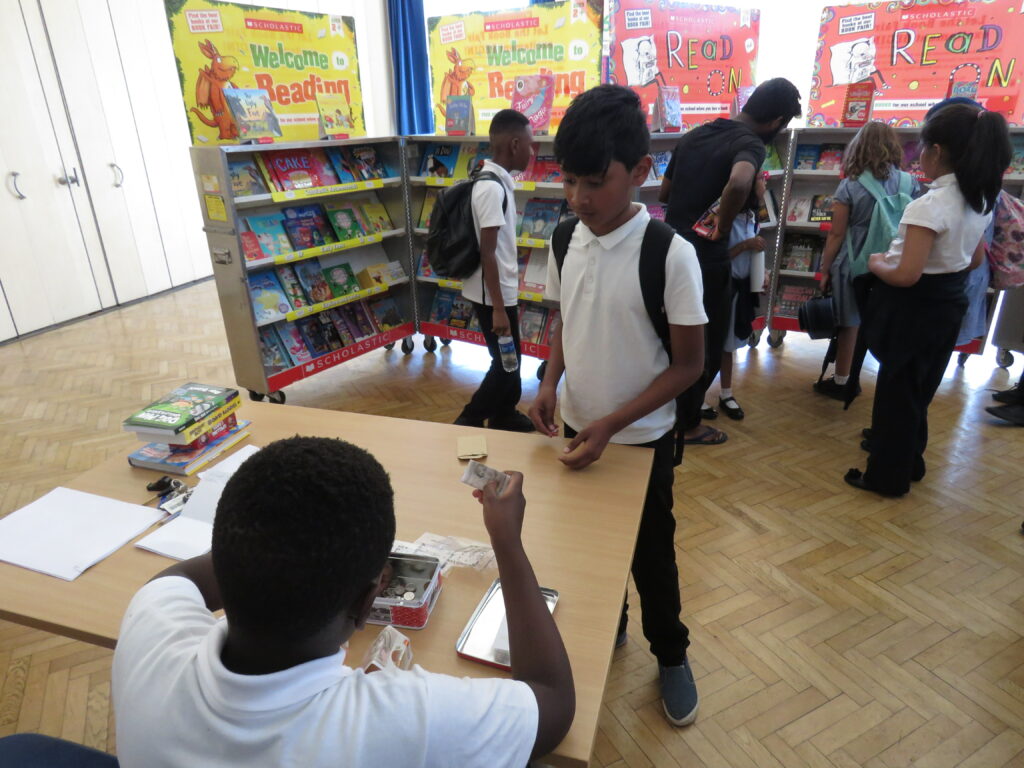
Impact
The ability to read is fundamental to many aspects of life and is central to developing an understanding in a wide range of areas of the curriculum. The importance of reading is understood by all pupils, parents/carers and staff and it is an enjoyable and life-long pursuit. Success in reading is crucial in developing children’s self-confidence and motivation to learning in general.
- By engaging in and listening to high-quality texts, children display enthusiasm for reading and choose to read for pleasure
- Children read for meaning and for pleasure, staff enthusiastically share texts and show themselves as readers and parents actively support us
- Children choose books independently and immerse themselves in topics of interest in lessons and beyond
- Children read in other subject areas and as a result their skills are enhanced and their understanding of the world is strengthened
- The importance of reading is understood by all pupils to encourage motivation and engagement
- A high number of children achieve the expected standard or higher, and through target interventions those who find reading challenging are helped to catch up
